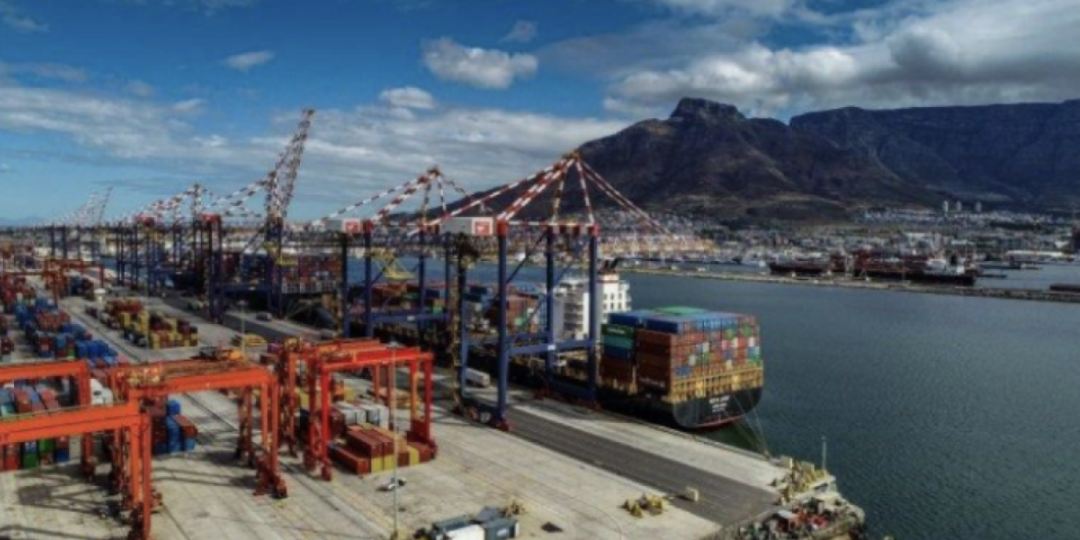The City of Cape Town has urged President Cyril Ramaphosa to announce plans for urgent reform to improve cargo handling efficiency at the Port of Cape Town.
“The city and country’s economy is dependent on the port for the efficient importing and exporting of goods,” said Mayoral committee member for economic growth, James Vos, ahead of the President’s State of the Nation address next Thursday.
Research from the South African Association of Freight Forwarders indicated that South Africa’s economy was losing R98 million a day due to challenges at the country’s ports, Vos said.
“Clothing retailers and manufacturers are unable to bring in products and raw materials to meet customer needs. Retailers have gone so far as to send containers to Walvis Bay, Namibia, and transport goods via truck to ensure they have the necessary inputs to do business,” he said.
In recent months, fruit exporters have been especially hard hit with Hortgro, the fruit industry representative body, reporting that some fruit exports through the port were down by as much as 62% in November and December 2023 compared to the same time in 2022.
“South African consumers are further hurt because the prices of various foodstuffs, such as cooking oil and canned goods, electronics like smartphones and laptops, as well as medications, are negatively impacted by the delays in the port. These delays knock local retailers who inevitably pass on the increase in cost to their customers,” Vos said.
“I am once again urging National Government to give a clear and decisive deadline as to when private sector partners can be brought in at our port, and importantly, they must detail what measures will be put in place to avoid misuse or maladministration,” he said.
The Freight Logistics Roadmap states that a private partner will be introduced at the Ngqura Container Terminal in the Eastern Cape in April this year while a private partner has already been appointed for Durban’s Pier 2.
“But the plan gives no insight as to when or if this will happen at Cape Town and other ports,” Vos said.
“An improved port would lead to the creation of job opportunities, increasing export volumes, and improving our standing in the global market. More specifically, if the necessary upgrades and maintenance are conducted, we can see an economic injection of R6bn and 20 000 new jobs.”
He added that he hoped the president would also consider further duty reductions for products used in clothing manufacturing.
“The reduction in 2021 of the 22% duty on imported woven fabric was an important step forward to improve the cost competitiveness of the industry,” he said.
According to research from the City’s Special Purpose Vehicle, the Cape Clothing and Textile Cluster, the rebate has improved the cost competitiveness of 22 million locally made products by an average R9.50 per garment.
“If such duty reduction measures were to be responsibly expanded into yarn and knitted fabric, more locally made products could achieve globally competitive prices and we could turbocharge interest in sourcing from South African manufacturers,” Vos said.













